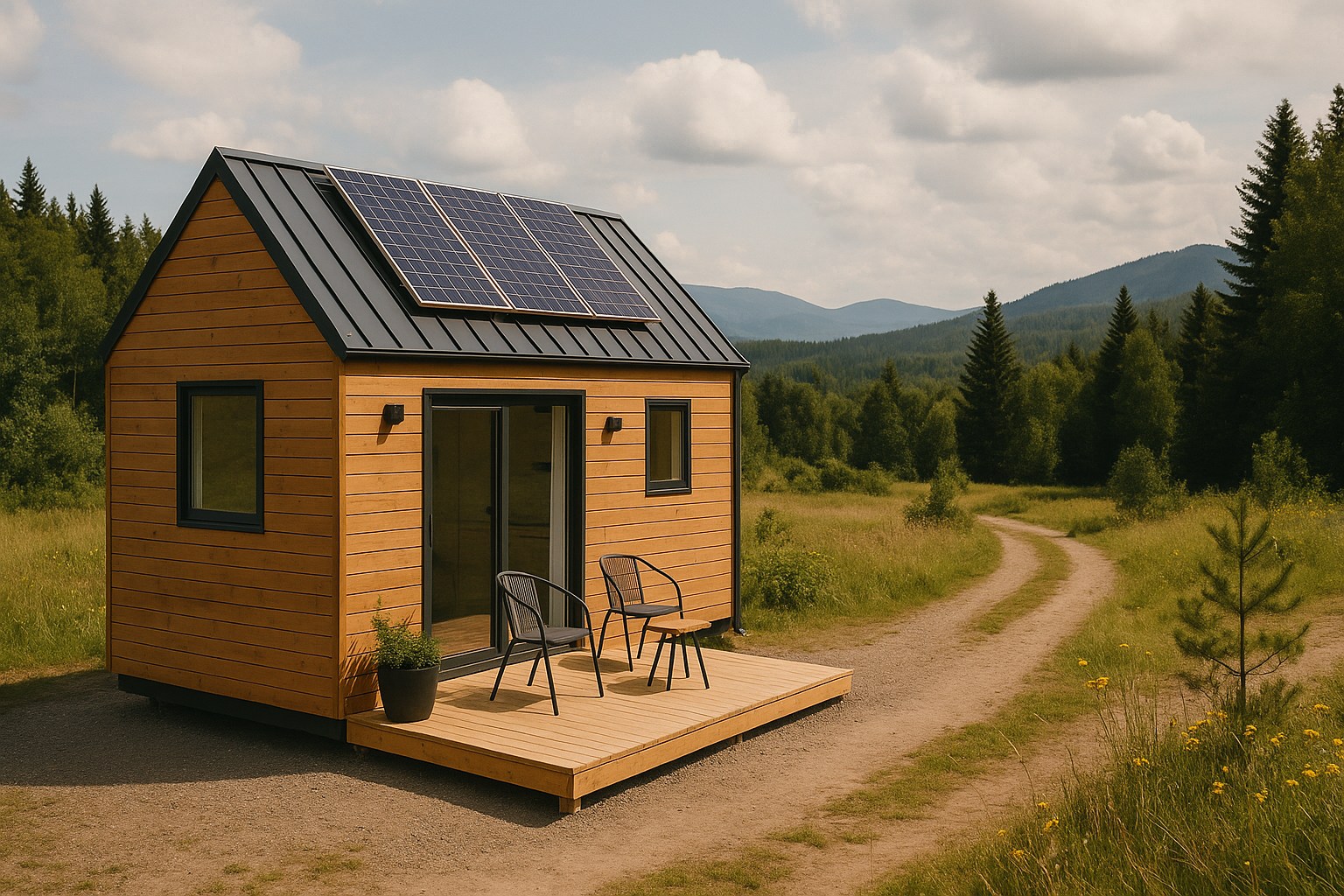
Tiny Home Eco-Tourism: Unlocking Rural Canada’s Potential for Sustainable Hospitality
Estimated reading time: 8 minutes
Key Takeaways
- Tiny home eco-tourism fuses sustainable living with unique travel experiences in rural Canada.
- Rural Canada offers breathtaking landscapes, low competition, and a welcoming community for eco-tourism businesses.
- Careful planning in legal compliance, property selection, and eco-friendly design is essential.
- Innovative marketing and operational excellence drive success in tiny home or ADU hospitality ventures.
- Overcoming challenges like harsh seasons and off-grid solutions is key for year-round viability.
Table of contents
Introduction: Tiny Home Eco-Tourism and the Rural Canadian Opportunity
Tiny home eco-tourism is reshaping the hospitality industry with its blend of minimalist living and sustainable travel. In Canada, the demand for unique, environmentally responsible accommodations is booming, as highlighted by insights from Tiny House Plans and Spring Financial. Rural Canada, with its pristine landscapes and welcoming communities, offers the perfect backdrop to launch a tiny home rental or ADU business.
Understanding Tiny Home Eco-Tourism
Eco-tourism focuses on responsible travel that protects natural habitats and benefits local communities. By integrating eco-friendly practices, tiny home rentals offer a way to experience Canada’s wilderness with minimal environmental impact.
Key aspects include:
- Reduced Resource Consumption: Tiny homes emphasize energy efficiency and minimal waste.
- Sustainable Materials: Use of reclaimed wood and recycled insulation makes these homes greener.
- Efficient Design: Compact floor plans, multi-use spaces, and eco-friendly technology enhance comfort without excess.
Benefits for travelers include a smaller environmental footprint, closer access to nature, and the charm of minimalist comfort. Resources like Glacier Park Collection and Minimalist Living Guide offer further insights.
Why Rural Canada is an Ideal Location for Eco-Tourism Hospitality
Rural Canada offers diverse natural backdrops—from forests and lakes to rugged mountains—that attract eco-tourists seeking authenticity and tranquility.
Natural Advantages:
- Stunning Scenery: Uncrowded landscapes and abundant wildlife create a perfect retreat.
- Authentic Experiences: Rural settings provide genuine cultural and outdoor experiences.
- Low Competition: Emerging markets with fewer existing hospitality options offer new hosts a chance to stand out.
Important considerations include local bylaws, zoning regulations, and infrastructure needs, with detailed guidelines available from resources like View Homes and Adustart.
Starting a Tiny Home or ADU-Based Hospitality Business
Launch your eco-tourism venture by selecting the right property, ensuring it meets zoning and environmental guidelines. A feasibility check addressing water, sewage, and power needs is essential. Insights from Adustart on permits can guide your process.
Design & Build:
- Invest in energy-efficient construction using high-quality insulation and double-glazed windows (Adustart Energy Efficiency).
- Incorporate renewable systems such as solar panels and off-grid solutions (Adustart Off-Grid Living).
- Use local and recycled materials to minimize the carbon footprint (Reclaimed Materials).
Legal & Operational Aspects: Secure necessary permits, register for rental licenses, and implement a regular maintenance schedule (Maintenance Checklist).
Marketing Your Eco-Tiny Home Rental
Attract eco-tourists with a robust marketing strategy that highlights the unique story behind your property. List your rental on eco-friendly travel platforms and collaborate with local businesses to offer additional experiences, such as kayaking or indigenous cultural tours.
Enhance your online presence through storytelling, guest testimonials, and visually appealing content. Check out industry inspiration from Destination Canada for more ideas.
Benefits and Challenges of Running an Eco-Tiny Home Hospitality Business
The benefits include diversifying rural land use and capturing a growing market for sustainable tourism. However, challenges such as seasonality, infrastructure limitations, and market competition remain.
Key Benefits:
- Financial Upside: Tap into a lucrative, eco-conscious market (Investment Insights).
- Environmental Impact: Promote low-impact living and conservation.
- Community Growth: Boost local economies and enrich community experiences.
Major Challenges:
- Adapting to seasonal demand and ensuring year-round viability (Winter Proof Solutions).
- Overcoming infrastructure hurdles such as reliable utilities and connectivity (Off-Grid Living Guide).
- Differentiating your brand in a competitive market through exceptional service and sustainable practices.
Conclusion: Seize Rural Canada’s Eco-Tourism and Tiny Home Rental Opportunity
Tiny home eco-tourism marries the enthusiasm for sustainable living with the allure of rural Canadian landscapes. By launching a tiny home rental or ADU business, you not only cater to eco-conscious travelers but also contribute positively to local communities and the environment.
Key steps to success include following legal guidelines, adopting eco-friendly designs, and crafting an engaging marketing strategy. Ready to transform your rural property into a sought-after travel destination? Explore further resources such as Living in a Tiny Home Guide and consult local experts for tailored advice.
Frequently Asked Questions
Q1: What is tiny home eco-tourism?
A: It is the integration of sustainable, minimalist tiny homes with eco-friendly travel practices, offering travelers immersive experiences while reducing environmental impact.
Q2: Why is rural Canada ideal for this type of tourism?
A: Rural Canada boasts pristine natural landscapes, authentic cultural experiences, and lower competition, making it perfect for eco-tourism ventures.
Q3: What legal and operational aspects should be considered?
A: Research local bylaws, zoning regulations, secure necessary permits, and maintain high hospitality standards to ensure a smooth operation.
Q4: How can I overcome challenges like seasonality and infrastructure limitations?
A: Utilize energy-efficient design, off-grid solutions, and tailor your marketing strategy to promote year-round experiences.

Leave a Reply